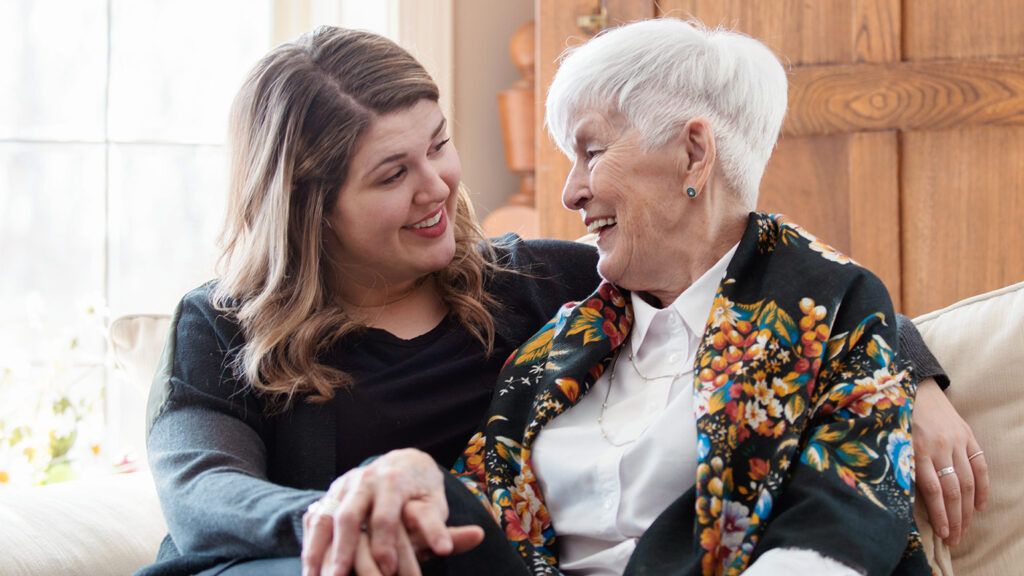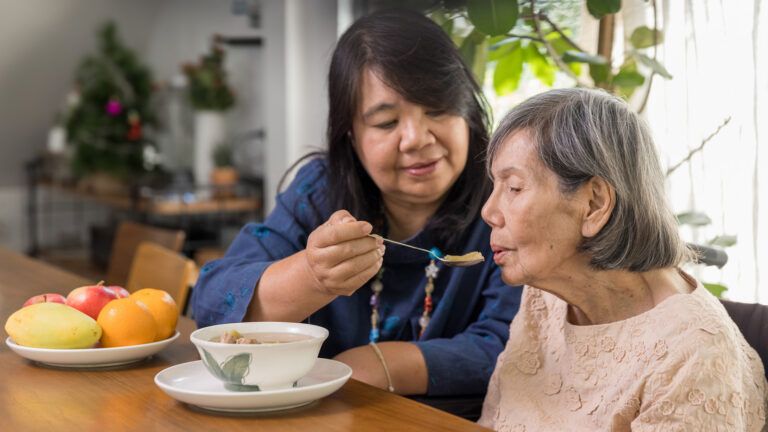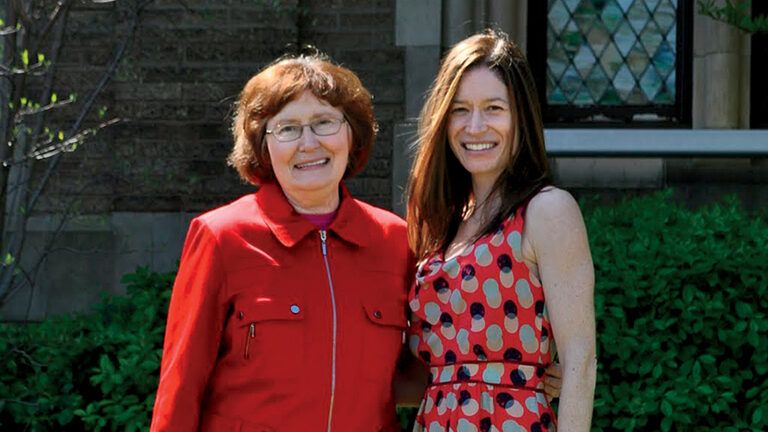A picture-perfect Mother’s Day is an ever-elusive prospect, given the age-old question: “What is perfection?”
When you’re both caregiver to an older mother and mother to your own kids, it can be especially tough to find the time and emotional wherewithal to carve out a celebration for the annals. If you throw a job into the mix, your challenges may feel insurmountable.
The key is to find your own particular sweet spot, even if it means honoring yourself and your mother separately or marking the holiday on a different date entirely, said Liz O’Donnell, founder of Working Daughter, a community for women balancing eldercare, career, kids and life.
“My term is always ‘sufficiently celebratory,’” O’Donnell told Guideposts.org. “I think as we all get older, what we tend to crave the most is time and connection, not killing ourselves to find the perfect gift but finding a way to be with another human being and connect with them.”
O’Donnell was a busy marketing executive raising two children when she became a caregiver; shortly after both her parents were diagnosed with terminal illnesses on the same day in 2014. She shared the following tips to help working mothers—who care for their own mothers—successfully navigate this holiday.
Realize that you’re grieving. “I think the two biggest challenges are time and grief,” O’Donnell said. “Time, I think, is pretty obvious. You’re working, you have children, you have potentially your own interests, and self-care. And then you have older parents and it’s incredibly difficult to fit all that in.”
O’Donnell said grief happens well before somebody passes away. “As our parents age, even as we age, as things change, we’re constantly grieving what was, whether we realize it or not. Grief might be a heavy word but we’re grieving the loss of the way things used to be. Because things are changing, the holidays aren’t the same.”
One way to deal with grief is to stay the heck off social media, O’Donnell said. “The thing about it is that we’re all putting our best moments forward,” she said.
“You’re struggling during a holiday moment and other people are posting ‘the flowers my husband gave me,’ and your husband didn’t give you flowers, or ‘the beautiful brunch with my mother’ and maybe there were only two minutes of that brunch that were actually pleasant. It’s unnecessary and it’s not healthy.”
Manage your expectations. Society leads us to believe there are people out there who are having these picture-perfect days, and yet real life never seems to measure up, so there’s some stress in that gap. Set expectations for yourself.
If that day on the calendar isn’t a day that makes sense to have a get-together or some fun event, Mother’s Day doesn’t have to be on Mother’s Day, O’Donnell said. “If life circumstances are particularly challenging this May, pick a day in June when whatever crisis or challenge you’re facing has subsided a bit.”
When bringing everyone together, think about what are the needs of the group. If you have young kids, it could be as simple as packing activities for them so you can sit and enjoy a cup of tea or a brunch with your mother.
From the older parent’s perspective, consider the environment, if they get disoriented or are hard of hearing, or have incontinence issues. Think about how you are setting up each group—the children, the adult child and the mother—for success and what’s the common ground; that’s probably where your sweet spot is for celebrating, according to O’Donnell.
Determine your values around the holiday. O’Donnell suggests that you think about what about “Mother’s Day” as a holiday is important to you. “For me, when my kids were young and I was working, I just never felt like I had enough time with them, so I wanted Mother’s Day to be about me,” she said. “I wanted it to be a day where I was pampered a little bit by my family, and I could be with my children and relax.”
O’Donnell said that as her kids got older and became less hands-on, however, all she really wanted was to spend time with her mother and mother-in-law. “I wanted to make the day about them and I didn’t really care if they did anything for me,” she added.
“I think every one of us, as we go through life, are going to have different needs around the holiday,” O’Donnell said. “It’s okay to set your own goals and expectations. You don’t need to feel bad about that.”
Outsource impersonal tasks. There’s that bit of eldercare that’s quite intimate and personal, or that the care recipient may not want outsourced to other people. “Think about what are the tasks that you can outsource? Those tend to be chores, meals, yardwork, those sorts of impersonal tasks that we all have to do every day,” O’Donnell said.
“Outsource them or ask for help to do my grocery shopping or pitch in for some housecleaning, so that I can be attentive to my adult parent and maybe I can also get a breather.”
Don’t isolate. Because caregiving can be so isolating, there are sensitive topics you may not be comfortable talking to other people about, O’Donnell said.
“We talk freely in the Working Daughter Facebook group about everything from, ‘Does anybody know the best walker?’ to ‘Somebody tell me something funny today.’ Caregivers really need support,” she said. “Here’s a place, 24 hours a day, where you have 6,000 people who get what you’re going through and the group is very supportive of each other. It’s kind of a beautiful place.”
Working Daughter also offers gift ideas for older parents, including those specifically for Mother’s Day.






